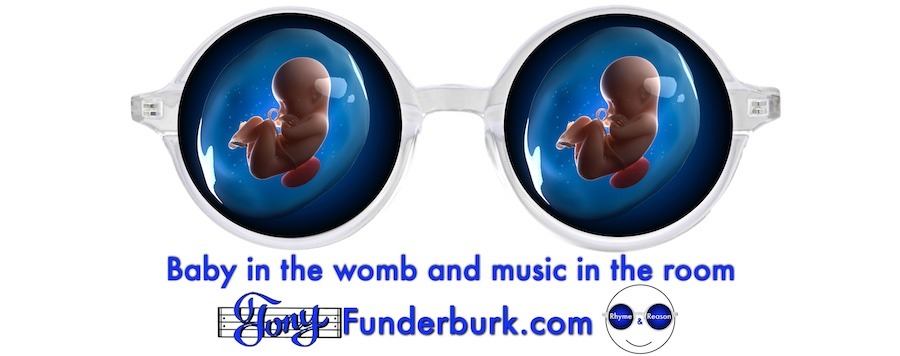OK, this is for pregnant (or soon to be pregnant) wives. So, you guys get a free pass today. Go solve some problems. Or read this to your wife when she’s dealing with some morning sickness. Get in some points while you can. Anyway…check this out. When you wanna find out about the development of your baby in the womb, there’s no warmer and fuzzier place than the National Center for Biotechnology Information. Those guys (yes, I’m using one pronoun to cover them all), could get even Father Abraham ready for kids with their goo-goo-gaga talk. Don’t take my word for it. For example, read their description of how your baby’s ears start to develop…
“The internal ear is derived from ectoderm, and it is the first of the three anatomic parts of the ear to form. Development begins as a pair of short-lived thickenings of the surface ectoderm, the otic placode or otic disc, appear dorsolateral to the hindbrain around the fourth week of development—the otic placode forms due to the induction of surface ectoderm by the nearby notochord and paraxial mesoderm. The otic placode is one of the first sensory placodes involved in the formation of special sensory organs to develop.”
Wow. What an amazing clump of cells your baby in the womb is.
And that’s just the inner ear. Imagine the cuddly-wuddly delights that must await during the development of the ear parts you can see. But I’m not here for the giggly-wiggly, today.
I just wanted to start off with a little ear formation information because I found some other information about music and the baby in the womb. And I saw a note that said babies are able to hear the music you hear somewhere around 23 weeks into the pregnancy. My guess is, they can detect it or pick up on it, in some way, even earlier than that. But the point is, unborn babies hear music.
And they can hear voices. And the gurgling of their mother’s stomach and the beating of her heart. Apparently most everything a baby can hear helps the development of neural connections to their brain. They (whoever they are) have even found evidence that a baby’s memory and emotions can develop better depending on surrounding sounds.
But many doctors and scientists say the sound and neural connection doesn’t mean music is essential to brain development. In other words, playing Beethoven and Mozart to your baby in the womb won’t make him or her smarter. But, even if that’s true, my highly educated guess is…it won’t make them stupider either.
And an added benefit is, it won’t make you or your husband stupider either.
But what might be a little stupid is if you play your music too loud. Here’s a list of decibel levels for some of the most common sounds of daily life:
- 30 dB Soft whisper
- 40 dB Refrigerator hum
- 60 dB Normal conversation, air conditioner
- 70 dB Washing machine, dishwasher
- 80 – 85 dB City traffic (from inside the car), gas-powered leaf blower
- 94 – 110 dB Sporting events
- 95 – 115 dB Rock concert
- 110 – 129 dB Sirens
- 140 – 160 dB Fireworks
- 160 dB and above – Anything a politician says
OK, full disclosure. I made up that last bullet point.
But, you know what? I’m not takin’ it back. Because I care about the health of your baby’s ears. And yours, for that matter. So, at the very least, when a politician is talking, do whatever you can to protect your hearing.
So, researchers says playing music for babies in the womb doesn’t make ’em smarter. But studies of older children do show that music can help with math and spatial reasoning skills. So, it seems to me that if the older kids benefit from listening to, let’s say, Beethoven, Mozart, or even Tony Funderburk, then sponge-brained babies can, too.
Stay tuned,
No-cost, low-cost, and premium ways you can help me spread the Word…
Tell everybody you know to subscribe to The FunderFlash Journal
(emails with good stuff for Fa-Ree)
Get my Rhyme & Reason Podcast delivered right to your device. (also Fa-Ree)
Get digital Bible stuff from the same company I do.
My books are also on Amazon.com or Apple Books
Grab yourself an un-cool T-shirt
Or how about some music for believers, dreamers, and thinkers


